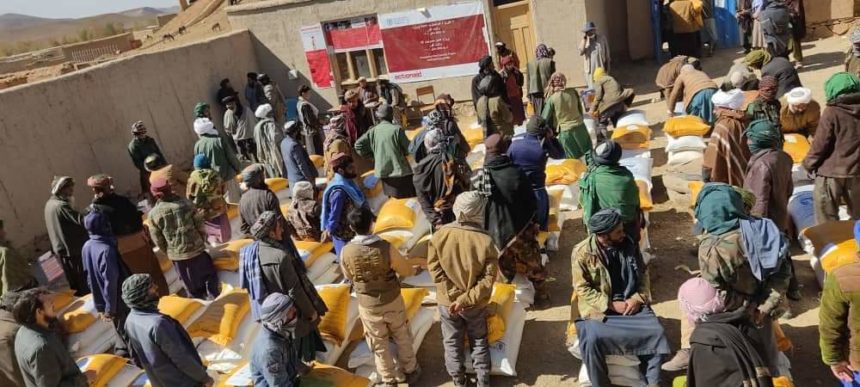RASC News Agency: International institutions have once again extended their support to farmers in various provinces of the country, as per Taliban officials. This time, aid was provided to 18,000 farmers in Kandahar and Farah provinces in the form of organic seeds and chemical fertilizer. On November 16th, the Department of Agriculture, Irrigation, and Livestock of the Taliban group in Kandahar announced that 16,000 farmers in the province received aid, which was financially supported by the Food and Agriculture Organization of the United Nations (FAO) through the Institute of Organizational of Human Welfare (OHW).
Similarly, the Department of Agriculture, Irrigation, and Livestock of the Taliban group in Farah shared that 2,000 farmers in the province also received assistance in the form of organic seeds and chemical fertilizer. Each farmer was provided with 50 kilograms of organic seeds and 100 kilograms of black and white chemical fertilizers.
The distribution of aid to farmers in the form of organic seeds and chemical fertilizer is not a novel initiative. These organizations have previously provided assistance to hundreds of farmers in different provinces of the country. This year, agricultural lands in several provinces have experienced severe damage due to floods and drought, resulting in decreased yields. Reports indicate that the livelihoods of many Afghanistani citizens depend on agricultural and horticultural work, and the lands of these farmers are often prone to natural disasters, causing significant damage.
It is crucial to acknowledge the efforts of international institutions in supporting farmers and addressing the challenges they face. By providing aid in the form of organic seeds and chemical fertilizer, these organizations contribute to the recovery and sustainability of agricultural practices in the country. The assistance provided to farmers in the provinces of Kandahar and Farah will undoubtedly aid them in overcoming the difficulties caused by natural disasters and ensuring the continuity of their livelihoods.






